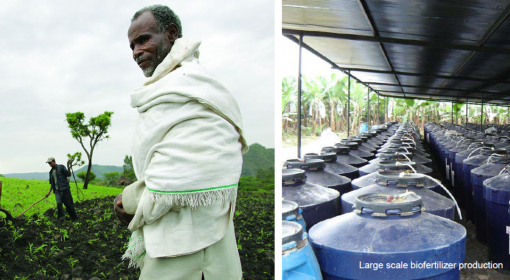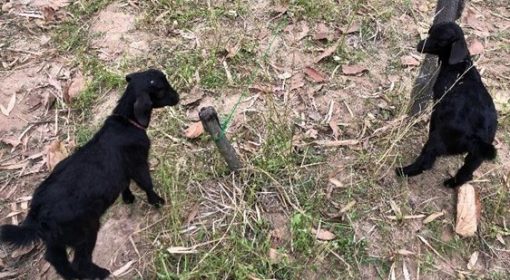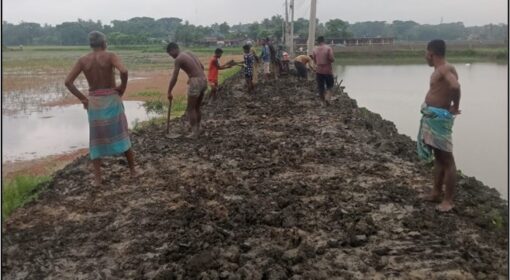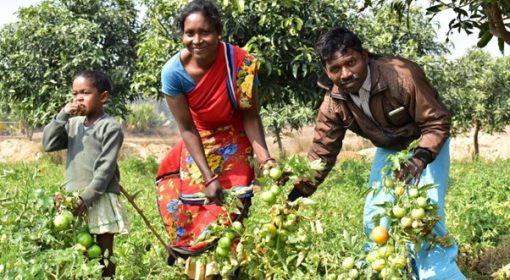By Anushree Mitra (MetaMeta)
A local entrepreneur is an individual who starts a business in their local area. Entrepreneurs are important to market economies because they can act as the wheels of the economic growth of the country. Local businesses don’t only build a stronger economy — they also build a stronger community. Relationships between small businesses are important in creating a cohesive, welcoming community identity, with businesses supporting each other.
One of the examples of this is set in a small village called Kureili in Madhya Pradesh’s Dindori district.
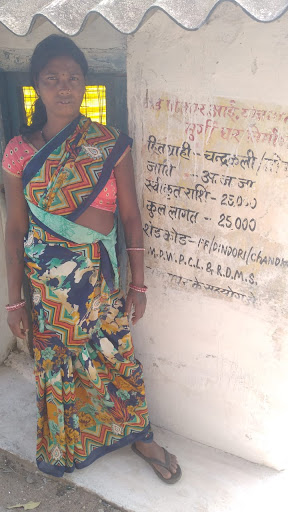
This story starts in 2005, when the Indian Organisation PRADAN (Professional Assistance for Development Action) started their interventions in these areas by forming Self Help Groups (SHG) first. Chandrakali Didi wasn’t willing to join it. She was so scared of talking to people that she used to run away from the backdoor of her house when people used to come to talk to her. It was her husband who actually signed up on her behalf. “I fought with him a lot and asked him why he put my name there. I don’t know what they’ll ask. What all I’ll have to say. Why did you do this?”
She was very scared and confused as to what was happening. Didi along with other women of the village could not even speak up openly. They used to cover their mouths with scarves. “I didn’t even know how to count money.”
Post SHG formation, she, along with the other women, had to face a lot of hindrances. Their own people kept on discouraging them. Telling them to not be a part of this. There was a common fear that people would collect all their money and steal that. There were other attempts to make SHGs in the other villages but none were successful. When they used to sit for the meetings, relentless taunts and accusations had become a part of their daily lives. “They (other villagers) also started influencing our husbands against us. Questioning our activities and whereabouts.” These things had started wreaking havoc in their personal lives as well. “We used to discuss that by the time we came home, our husbands used to finish their food, put the plates that way and put out the fire in the chulha (gas). They didn’t even leave food for our children or even make food for them.” But Chandrakali Didi was determined to not leave the group no matter what. This had slowly started escalating to a point where domestic abuse had become a part of their daily lives. “When we used to go to collect the water, we used to ask each other, when our husbands had opened the door. It used to get so difficult,” said Chandrakali Didi.
Chandrakali Didi didn’t have money to contribute to the SHGs. They all started with contributing 50 paisa. “That time we didn’t have money, we didn’t have enough produce which would last for a year. We had to go to other fields for labour work.”
She and 14 other women in her village started the poultry farm with the help of the organisation PRADAN (Professional Assistance for Development Action) in 2007. “We joined the SHG but we needed extra income. We didn’t have any other source of livelihood.” Chandrakali Didi started with the thought process that with a poultry farm, they can take care of the household as well as their children and work in their fields as well.
“Initially we started with 15 women from my village and now it is 476 women from 23 villages in 2 blocks. (Amarpur and Samnapur)” She had to face a tremendous number of insults from the community after starting the poultry farm. “You have made this village a hell. This smells like hell.” Despite such harsh comments and daily taunts, Chandrakali Didi didn’t back down. She started with the poultry farm but started facing problems regarding marketing and transportation. “When I started with it, I had to face a lot of problems. I didn’t even get proper fodder for the chicken. I used to buy rice and grind maize for them myself and feed them” Even during the lockdown, she along with other women used to walk in the villages and sell their chicken.
Presently, the situations have changed completely for Chandrakali Didi. “I started with 400 chickens and I took out a loan and scaled it to 700 chickens.” She started earning for herself and her family. Today she is not only getting respect from society but also her own home. The fact that she is also helping in running the house is a matter of great pride for her and her family. Initially she couldn’t even afford the things she required. She had to convince her husband day after day of her rudimentary requirements. “Now, I bought the bike in my name. I travel everywhere alone for exposure visits.” Her family couldn’t even earn 10000 INR in a year. The agricultural yields were also less. And now she alone earns 30000 INR just from the farm.
Currently the poultry farm is run by a cooperative made by the women themselves and Chnadrakali Didi is the Vice-President of it. Last term, she was the President as well. She feels extremely honoured that she gets elected for these positions. “I want my sisters in the village to also start earning like I do. They also become empowered and financially more capable like I have become.” Today the people in her village are also inspired and want to have a farm of their own. The turnover of her cooperative today is 11 crores. She wants to scale the capacities of the existing farms and include more women in the cooperative. “I want to include more of my sisters but there is a lack of markets.”
Chandrakali Didi is the true example of “Where there is a will, there is a way.” Despite such harsh insults and continuous oppression, her relentless pursuit for herself and the women around her is an inspiration for us today. Women like Chandrakali Didi are the true champions of local entrepreneurship who are not only boosting their local economy but also bringing the communities together, one step at a time.
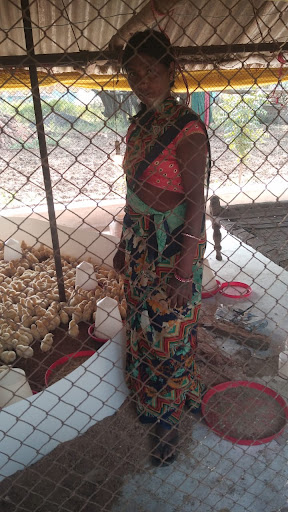
Produced by:

